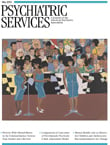News Briefs
Improving policy for "dual eligibles": Health care reform presents an opportunity to realign federal and state policy for nine million people who are covered by both Medicare and Medicaid, about a third of whom have serious mental illness. The dually eligible population accounts for nearly half of all Medicaid spending, which limits the ability of states to fund other priorities. Navigating two programs with different rules and financing incentives is complex for beneficiaries and providers, impedes coordination, and results in cost shifting between programs that does not promote better outcomes. Realigning federal and state responsibilities for this population could provide improved coordination and management of services, better accountability, and more stable financing. An eight-page brief from the Kaiser Family Foundation examines federal and state roles and lays out health policy options, focusing on opportunities to improve coverage, delivery and payment, and financing. Options include developing systems that provide integrated acute and long-term services and supports, increasing the availability of home- and community-based care, and providing more stable financing. Health Reform Opportunities: Improving Policy for Dual Eligibles is available on the Kaiser Web site at www.kff.org/medicaid .
NIMH RAISE project announced: The National Institute of Mental Health (NIMH) has announced awards to two research groups for a large-scale project exploring whether early and aggressive treatment that is individually targeted and that systematically integrates a variety of therapeutic approaches will reduce the symptoms and prevent the gradual deterioration of functioning that is characteristic of chronic schizophrenia. Treatment will be delivered in up to 30 clinical sites across the United States. Recovery After an Initial Schizophrenia Episode (RAISE) will rely on active involvement of government agencies, providers, and consumers and family members to help ensure that if the evidence-based approach is successful it can be disseminated and adopted rapidly. Two research groups will work in parallel to develop and test potential approaches. One group is led by John M. Kane, M.D., of the Zucker Hillside Hospital, Feinstein Institute for Medical Research, Manhasset, New York. The second group is led by Jeffrey Lieberman, M.D., of the Research Foundation for Mental Hygiene, Inc., New York City. American Recovery and Reinvestment Act funds will underwrite the initial two phases, during which the investigators will refine the interventions with input from stakeholders and then conduct a feasibility study to demonstrate that interventions can be fielded in real-world settings and can be evaluated in a randomized clinical trial. With long-term NIMH funds committed to these phases plus the clinical trial, funding for the study is $40 million. More information about RAISE is available on the NIMH Web site at www.nimh.nih.gov .
SCHIP expands in states after reauthorization: At least 13 states have increased income eligibility levels for their State Children's Health Insurance Program (SCHIP) since the program's reauthorization in February 2009, which has added 250,000 children to SCHIP rolls, according to a New York Times report in July. The reauthorization gives states the option of raising eligibility to 300% of the poverty level (or $66,150 for a family of four) from a ceiling of 250% set by a Bush Administration directive. States receive about 70% of SCHIP funds from the federal government, but they can receive a larger share by committing more state funds. In addition, three states are dropping rules that legal immigrants must wait five years before becoming eligible, which the new legislation permits. Other states have extended coverage to pregnant women or streamlined enrollment and eligibility procedures. SCHIP served about 7.4 million people in 2008. Of the 8.2 million children who remain uninsured, about two-thirds are eligible for either SCHIP or Medicaid but have not been enrolled, according to the Kaiser Family Foundation. The reauthorization includes $100 million in grants to help states sign up eligible children. The report on SCHIP, which is accompanied by an interactive state map, appeared in the July 19 New York Times.
Improving women's mental health: Recent decades have brought advances in understanding of the role of gender in the risks, course, and treatment of mental illnesses and the effectiveness of new treatment options. The Office of Women's Health of the U.S. Department of Health and Human Services, in collaboration with several other federal agencies, has developed a series of recommendations for policy planners, health care providers, researchers, and others to promote improved mental health for U.S. girls and women. The 56-page document reviews and summarizes research on the burden of mental illness for women and gender differences in rates of and risk factors for mental illness. Twelve action steps and the rationale for each are then presented. For example, one step calls for recognition of the prevalence of trauma, abuse, and violence in the lives of girls and women and for increased prevention efforts and support of promising new approaches that enhance recovery. A 30-page appendix includes an extensive list of resources and a bibliography. Action Steps for Improving Women's Mental Health is available on the Web site of the National Mental Health Information Center at mentalhealth.samhsa.gov .



